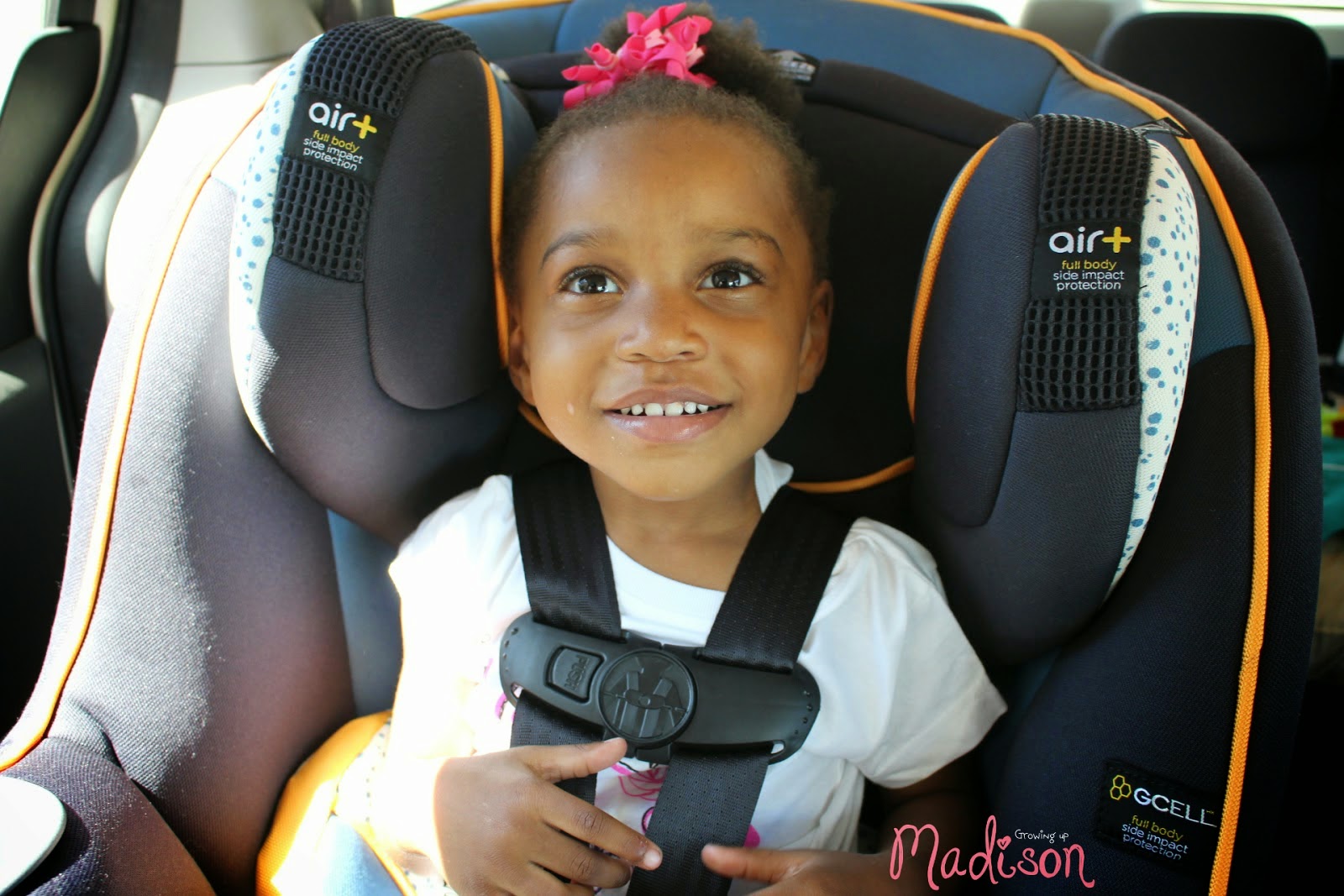Did you know Sept. 14-20 is Child Passenger Safety Week, with September 20th being National Seat Check Saturday? Car crashes are a leading cause of death for children 1 to 13 years old, and often times deaths and injuries can be prevented by proper use of child restraints and seat belts.
Sponsored by the U.S. Department of Transportation and the National Highway Traffic Safety Administration (NHTSA) the goal of Child Passenger Safety week is to make sure all parents and caregivers are properly securing children (ages 0-12) in the best car restraint (rear-facing, forward-facing, booster, seat belt) for age and size.
Safety 1st wants to share some Car Seat Safety Tips with you from the experts at Safety 1st.

Importance of Rear Facing
In March of 2011 the American Academy of Pediatrics (AAP) updated their car seat recommendations advising that children should remain rear facing until the age of two. According to a study in the Journal of Injury Prevention children under the age of two are 75% less likely to die or be severely injured in the event of a car crash if they are rear facing. When a child is rear facing their head, neck and spine are better supported and in the event of an accident, crash forces are distributed over the child’s entire body.
Location
Typically the center rear seat is the safest place for a car seat, and never install a car seat in the front seat. If your car does not have a latch connector for the middle seat, you can use the middle seat belt to properly secure the base. When installing, make sure the base of the car seat moves no more than an inch from side to side. An easy way to test this is to hold at the belt path.
Car Seat Expiration
Car seats do have an expiration date, it is recommended that car seats be replaced every 5-8 years, or immediately after a crash. The reason for an expiration date is because plastic can warp and materials can fray, which can make car seats not as effective in the event of a crash. Additionally car seat technology and state and federal car seat regulations change over time. Important warning labels may wear out and instruction books may get lost, which can lead to improper use of the car seat.
Safeguard the Car
Childproof the inside of the car and eliminate projectiles. Anything in the car that is not secured is a possible projectile—even a child’s toy or a water bottle. In a crash, objects take on greater weight due to crash forces.
Child Safety Seats by Safety 1st
onBoard 35 Air +Infant Car Seat
Air Protect + combines the advanced protection of the Air Protect® cushion system with patented GCell HX™ foam designed with hexagonal shapes for superior protection around the torso. TOGETHER they provide full body side impact protection.
Advanced SE 65 Air +Convertible Car Seat
For children from 5-65 pounds. In addition to Air Protect +, the Advance 65 Air + uses a steel-reinforced metal frame for extra stability and includes a 4-position recline for an optimal fit to your vehicle. We’ve also included color-coded belt paths and installation labels to help you install it quickly and correctly.
Summit® Booster Car Seat
Forward-facing: 22–40 pounds with belt positioning at 40–100 pounds. Fully loaded with ease-of-use features that parents will appreciate: like the 4-position QuickFit™ headrest, which adjusts without the need for rethreading, and a 5-point safety harness with Center Front Adjust.
Incognito Kid Positioning Seat
A new category for car seats. The goal of Safety 1st is to help educate parents that any child under 4’9” (57”) in height should still be in a belt-positioning seat. The Incognito blends into the car and prevents slouching to ensure comfortable and proper positioning of the seat belt. With the introduction of this seat, the use of child restraints has been expanded to accommodate children weighing 60 to 120 pounds and standing up to 60 inches.
I encourage those of you with car seats installed to get your car seats checked. You can click here to find a car seat safety check near you.
